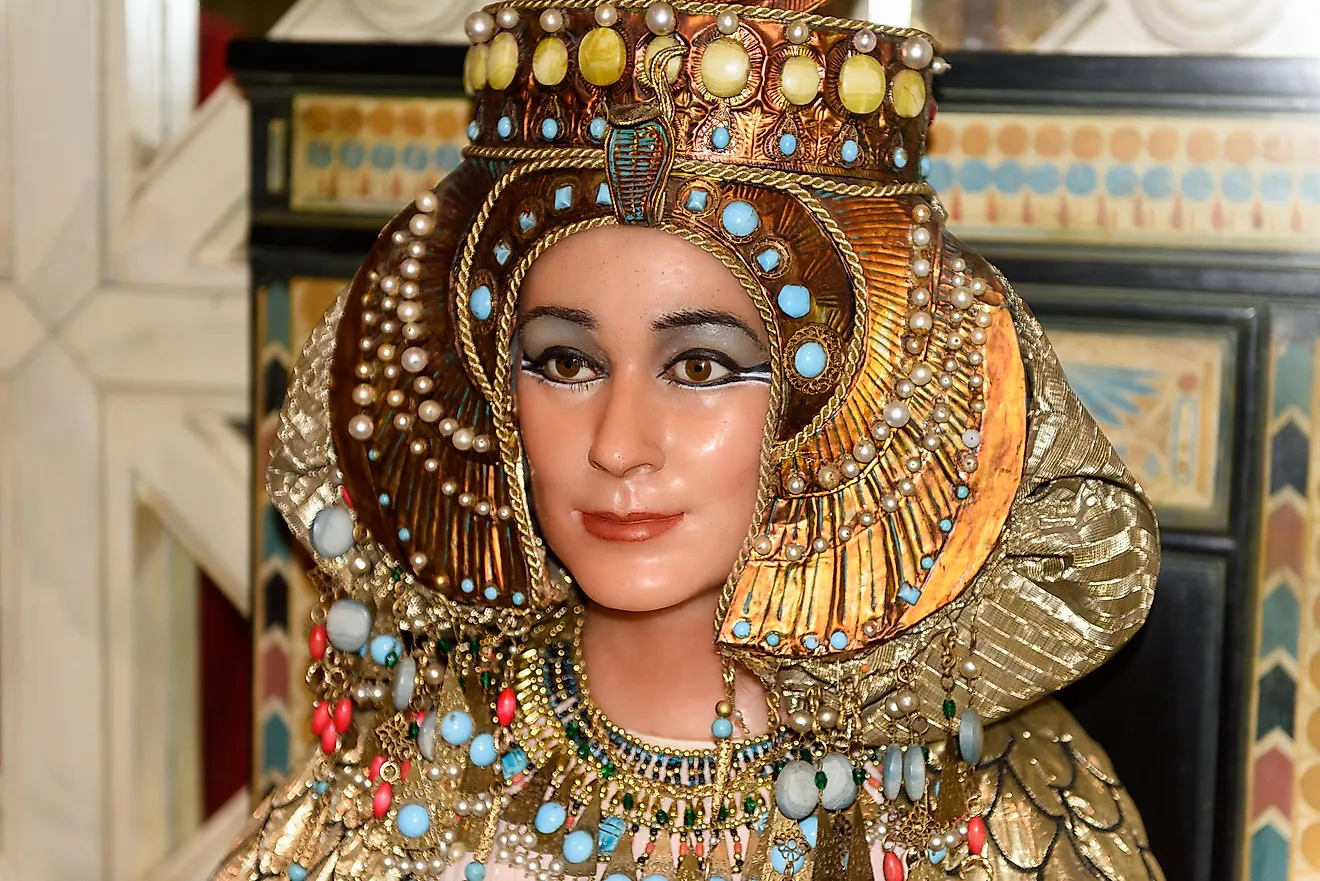Who Was The Last Egyptian Pharaoh?

Cleopatra VII is considered the last Egyptian Pharaoh. She was born in about 69 BC to Ptolemy XII, also known as Auletes and Cleopatra V Tryphaena. Her transformation of Egypt, which at the time was bankrupt and divided by civil war into one of the most prosperous kingdoms in the world, earned her praise as an intelligent and politically conscious ruler. Some have also portrayed her as beautiful and a seductress.
Cleopatra's Ascension to the Throne
When Ptolemy XII passed away, the throne was passed to Cleopatra and Ptolemy XIII, her brother. The two married according to the custom and subsequently got into a dispute due to Cleopatra's to become the sole ruler. She later escaped to Syria in 49 BC after her brother's allies acted against her. While in Syria, Cleopatra formed an army and set out to regain her throne. In 48 BC, the kingdom was drawn into a conflict in Rome that pitted Julius Caesar against his arch-rival Pompey who fled to Egypt and was killed on Ptolemy XIII's orders. In pursuit of his rival, Caesar also arrived in Egypt. His arrival led to temporary peace.
Cleopatra and Julius Caesar
With Pompey out of the way, Caesar summoned the warring siblings to the palace in Alexandria to try and settle the dispute. Egypt was a cooperative ally of Rome, and it was, therefore, in its economic interests to make sure that Egypt was stable. Cleopatra knew that gaining an audience with Caesar was her best chance of attaining the throne. On orders from Ptolemy XIII, forces loyal to him barred her return to the capital. She then convinced one of her servants to sneak her into the palace while wrapped with a carpet. Cleopatra and Caesar became lovers while remaining besieged in the city until the arrival of Roman reinforcements. After the ensuing battle, Ptolemy XIII died as a result of drowning in River Nile while fleeing. Cleopatra re-ascended to power with her much youngest brother Ptolemy XIV. She later gave birth to a child named Caesarion, (a son of Caesar). She followed Caesar to Rome and later went back to Egypt in 44 BC after he was assassinated. Ptolemy XIV, her co-ruler, died soon after.
Cleopatra and Mark Anthony
Back in Rome, a conflict between the assassins of Caesar, Cassius and Brutus and a triumvirate consisting of Octavian, Mark Antony, and Lepidus was raging. In 42 BC the triumvirate prevailed with the help of Cleopatra. Power in Rome was divided between Octavian, Caesar's nephew, and Mark Antony. Antony later summoned Cleopatra to Tarsus. Cleopatra honored his summon, and reportedly made a grand entrance into Tarsus. Mark Anthony then married to Fulvia, was immediately captivated by her personality and beauty. The two fell in love. With Antony as an ally, her Kingdom would get protection. She also sought to reclaim Egypt's eastern empire with his help. Antony, on the other hand, needed Cleopatra to finance his rule. The two lovers returned to Alexandria on a golden throne alongside their children to a triumphant welcome.
End of Cleopatra’s Reign
A heated dispute soon started when Antony declared that Caesarion was the legal heir to Caesar as opposed to Octavian who was adopted. In 31 BC, a battle between Octavian and the combined forces of Antony and Cleopatra at Actium ended disastrously for the couple. Cleopatra fled back to Egypt and was soon followed by Antony. During the period, a rumor of Cleopatra’s suicide reached Mark Anthony. In grief, he committed suicide by falling in his sword. After the burial of Antony, Cleopatra committed suicide as well by having an asp, associated with divine royalty, bite her. They were both buried beside each other according to their wishes.
Legacy
Cleopatra's life has captivated storytellers and historians all over the world. She has inspired plays such as "Antony and Cleopatra" by William Shakespeare and many films. Cleopatra was the only ruler that made an effort to learn the Egyptian language. She also identified herself with Isis, an Egyptian goddess.











